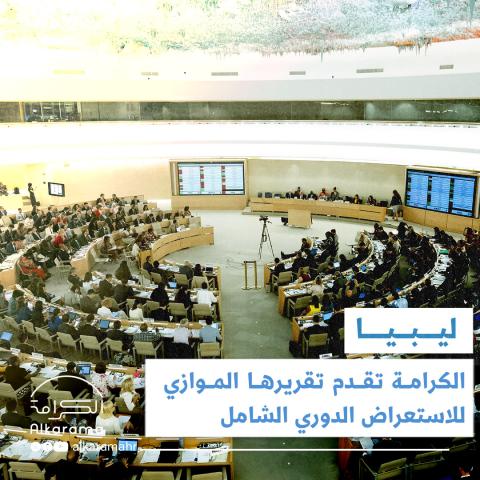
On 7 April 2025, Alkarama submitted its report to the United Nations (UN) Human Rights Council as part of the 4th cycle of Libya’s Universal Periodic Review (UPR).
This unique UN mechanism allows for the assessment of human rights situations in each UN member state every four to five years, with concrete recommendations made to improve the protection of fundamental freedoms.
Through this report, Alkarama provides a thorough analysis of the human rights situation in Libya, based on its field expertise and numerous cases it has documented and followed in recent years.
In this context, Alkarama had recently called on the UN Committees against Torture and Human Rights to resume the examination of Libya's reports, which have been suspended for many years.
Ongoing Violations
In its report to the Human Rights Council, Alkarama condemned the persistence of serious violations, supported by concrete cases of victims it has assisted through its on-the-ground work. Arbitrary arrests, prolonged detention without trial, acts of torture, and enforced disappearances: these practices continue in an environment of total impunity, largely due to the collapse of judicial institutions and the uncontrolled influence of armed groups integrated into state structures.
The report highlights the authorities' inability and lack of will to guarantee even the most basic rights, such as the right to a fair trial, protection from torture, and freedom of expression. Alkarama also underscores the absence of effective remedies for victims and their families, who often encounter a wall of silence or threats when attempting to assert their rights.
As a result, Alkarama has called for urgent structural reforms, including the end of arbitrary detention, the dissolution of armed groups operating outside any legal framework, their eventual integration into state security forces, and the restoration of an independent judicial system.
Through this report, Alkarama hopes to alert the international community to the urgency of the situation in Libya and encourage member states to make ambitious recommendations that lead to tangible action.
